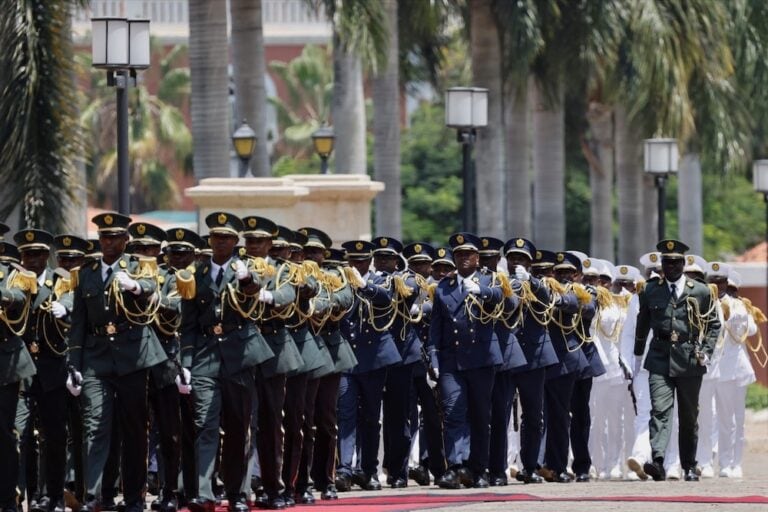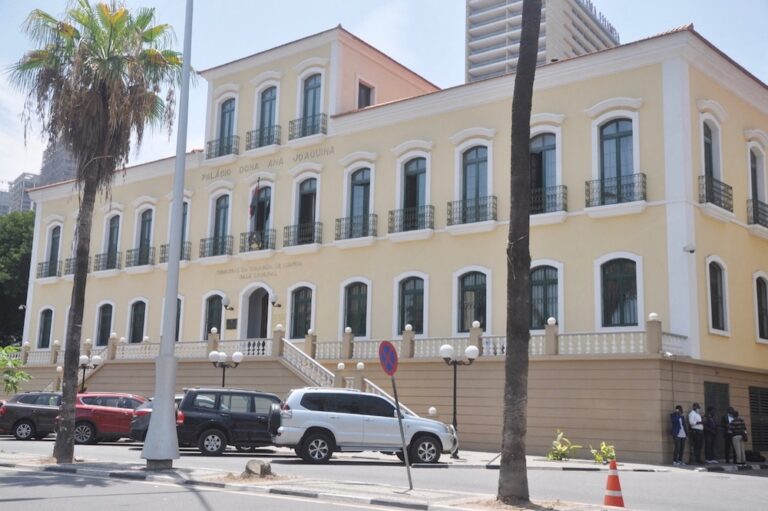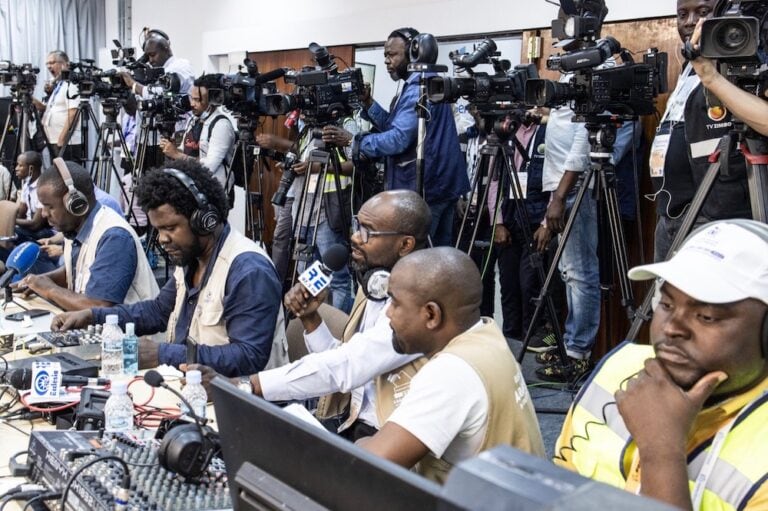Angola has denied entry to at least 17 members of southern African NGOs seeking to participate in a civil-society forum ahead of the summit and has confiscated advocacy documents from Zimbabwean activists, according to news reports.
(CPJ/IFEX) – New York, August 16, 2011 – The Committee to Protect Journalists is troubled that Angolan immigration authorities barred Joana Macie and Manuel Cossa, two Mozambican journalists, from entering the country on Thursday, claiming they lacked the proper entry visas.
The journalists were traveling to Angola via South Africa as invited participants to a workshop on economic reporting and gender, which was organized by the Luanda-based journalism school Centro de Formação de Jornalistas and the South Africa-based NGO Gender Links, workshop facilitator and Gender Links Director Eduardo Namburete told CPJ.
The incident occurred ahead of the Summit of Heads of State and Government of the 15-member Southern African Development Community (SADC), scheduled to take place in Luanda this week. Since last week, Angola has denied entry to at least 17 members of southern African NGOs seeking to participate in a civil-society forum ahead of the summit and has confiscated advocacy documents from Zimbabwean activists, according to news reports. Authorities suddenly cancelled the event, which was scheduled to feature discussions, among other things, on governance, accountability, media freedom, and access to information – domains in which Angola lags behind, CPJ research shows.
“We’re concerned by the Angolan immigration authorities’ refusal to allow Joana Macie and Manuel Cossa to enter Angola,” said CPJ Africa Advocacy Coordinator Mohamed Keita. “We call on the Angolan government to explain why the journalists were expelled and to allow them to attend the event.”
Reporter Macie of the Mozambican daily Noticias told CPJ that Angolan immigration officials confiscated her passport without explanation and took her to a room with other passengers, including fellow journalist Cossa, editor of the private Magazine Independente, immediately after their flight landed in Luanda. Angolan officials forced the journalists and other passengers, including a dozen delegates of southern African civil-society organizations who had arrived to attend the SADC 7th Civil Society Forum, onto a bus and then onto a plane to South Africa, she said.
Three other Mozambican journalists traveling with Cossa and Macie – Hermínia Machel of state television station TVM, Orlando Ngovene of Radio Mozambique, and Francisco Carmona of private weekly Savana – were not denied entry, according to news reports.
In a statement on Friday, three prominent southern African civil-society organizations called on the leaders of the SADC member states to withhold the rotating presidency of the organization from Angolan President José Eduardo dos Santos, who is expected to assume the chairmanship this week, news reports said. “We strongly believe that Angola does not deserve to chair SADC until they have resolved their internal democratic deficits, lack of transparency, and continued repression of civil-society voices,” the statement said.
On Friday, Simão Milagres, a spokesman of Angola’s Migration and Foreigners Services, was quoted in local news reports as saying the journalists were turned back “due to the lack of entry visas.” Milagres denied any suggestion that Cossa and Macie had been rejected because they were journalists and said the incident could have been avoided had the organizers of the event contacted Angolan immigration services expeditiously.
However, copies of Cossa and Macie’s passports, which were obtained by CPJ, show that the two journalists were granted short-term visas, identical to those of the other three journalists, to be in Angola from August 9 through August 16.
The Mozambique chapter of the Media Institute of Southern Africa issued a statement saying the Angolan immigration authorities’ justification for deporting the journalists fell short of international standards. Mozambican Deputy Minister for Foreign Affairs and Cooperation Henrique Banze told Voice of America on Tuesday that his government had “taken note” of the incident.


